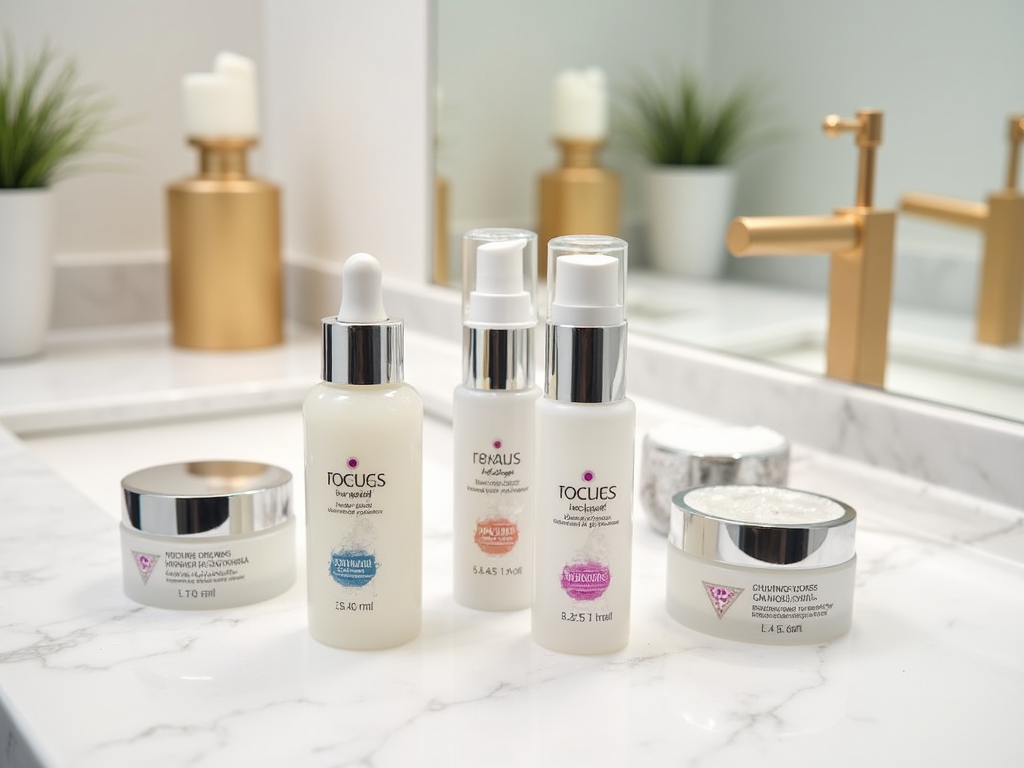Neuropeptides in skincare are powerful molecules used to enhance various skin treatments by mimicking the body’s natural communication system. These tiny proteins are integral in signaling skin repair, replenishment, and protection. With their role in anti-aging products and skin rejuvenation, neuropeptides are gaining popularity among skincare enthusiasts and professionals alike. This article delves into the function, benefits, and incorporation of neuropeptides in skincare, showing how they can transform your skincare routine.
Understanding Neuropeptides: The Basics

Neuropeptides are small chains of amino acids that serve as signaling molecules in the body. They are crucial for communication between the nervous system and various organs, including the skin. In skincare, neuropeptides mimic these natural processes to enhance cell function and rejuvenate the skin. By improving skin elasticity and reducing fine lines, they play a significant role in anti-aging skincare products.
Skincare products infused with neuropeptides capitalize on their ability to stimulate collagen production. Collagen is a vital protein that maintains the skin’s firmness and elasticity. With age, collagen production declines, leading to wrinkles and sagging. Neuropeptides help counteract this decline by enhancing collagen synthesis and maintaining a youthful appearance.
Neuropeptides bring a range of benefits when incorporated into skincare regimens. Their primary function is to enhance communication between skin cells, thereby optimizing their performance. This results in a more efficient and effective rejuvenation process, which is critical for maintaining healthy skin.
Here are some of the key benefits of neuropeptides in skincare:
- Anti-aging Effects: By increasing collagen production, neuropeptides help reduce the appearance of wrinkles and fine lines.
- Improved Elasticity: They improve skin elasticity, making it look firmer and more youthful.
- Hydration and Plumping: Neuropeptides enhance the skin’s ability to retain moisture, keeping it hydrated and plump.
- Skin Repair: They stimulate cell repair and regeneration, leading to a healthier skin barrier.
Incorporating Neuropeptides into Your Skincare Routine

Adding neuropeptides to your skincare routine can be incredibly effective, especially for those focusing on anti-aging and rejuvenation. Neuropeptides are typically found in serums, creams, and masks designed to deliver concentrated benefits. It’s recommended to use these products consistently for maximum effect.
One effective way to incorporate neuropeptides is by following these steps:
- Cleanse your skin to remove impurities and prepare it for treatment.
- Apply a neuropeptide serum to target specific areas like the forehead or around the eyes where wrinkles are more prominent.
- Follow up with a moisturizer that contains neuropeptides to lock in the serum’s benefits and keep the skin hydrated.
- Use a broad-spectrum sunscreen during the day to protect the skin from harmful UV rays.
It’s essential to choose products suited to your skin type and consult with dermatologists if necessary to create a routine tailored to your skincare needs.
How Neuropeptides Compare to Other Skincare Ingredients
Neuropeptides are often compared to other anti-aging ingredients such as retinoids, peptides, and antioxidants. While similar, they have distinct mechanisms and benefits. Unlike retinoids, which can sometimes cause irritation, neuropeptides tend to be gentler on the skin while still providing significant anti-aging benefits.
Peptides, in general, are renowned for their anti-aging properties; however, neuropeptides offer advanced specificity in communication and response within the skin. They trigger more precise actions, like stimulating certain types of collagen production that address deeper wrinkles.
Therefore, when combined with other skincare products, neuropeptides provide a complementary boost, enhancing the efficacy and results of your overall skincare regimen without adverse side effects. By understanding how each component works, users can create a more robust skincare routine.
Conclusion
Neuropeptides have emerged as formidable ingredients in the world of skincare, providing targeted anti-aging benefits by enhancing communication between skin cells. Their role in boosting collagen production and improving skin hydration makes them an attractive addition to any skincare routine. As skincare technology evolves, neuropeptides are set to remain at the forefront, providing users with effective solutions for maintaining youthful and healthy skin.
Frequently Asked Questions
What makes neuropeptides different from regular peptides?
Neuropeptides are specific types of peptides that play a role in cell communication and signaling for skin repair and regeneration. They have more targeted actions compared to general peptides.
Are neuropeptides safe for all skin types?
Yes, neuropeptides are generally safe for all skin types. However, as with any new skincare product, it’s advisable to patch-test to ensure compatibility and consult a dermatologist if you have sensitive skin or concerns.
Can neuropeptides be used with retinoids?
Yes, neuropeptides can be used alongside retinoids. They often complement each other well, but it’s essential to monitor the skin for any signs of irritation and adjust usage as necessary.
How soon can one see results from using neuropeptides?
Results can vary depending on individual skin conditions and product formulations. Generally, visible improvements may be noticed within a few weeks of consistent use.
Are there any side effects of using neuropeptides in skincare?
Neuropeptides are known for their gentle nature and usually have minimal side effects. As always, monitor your skin’s reaction, especially if you’re using them for the first time.



